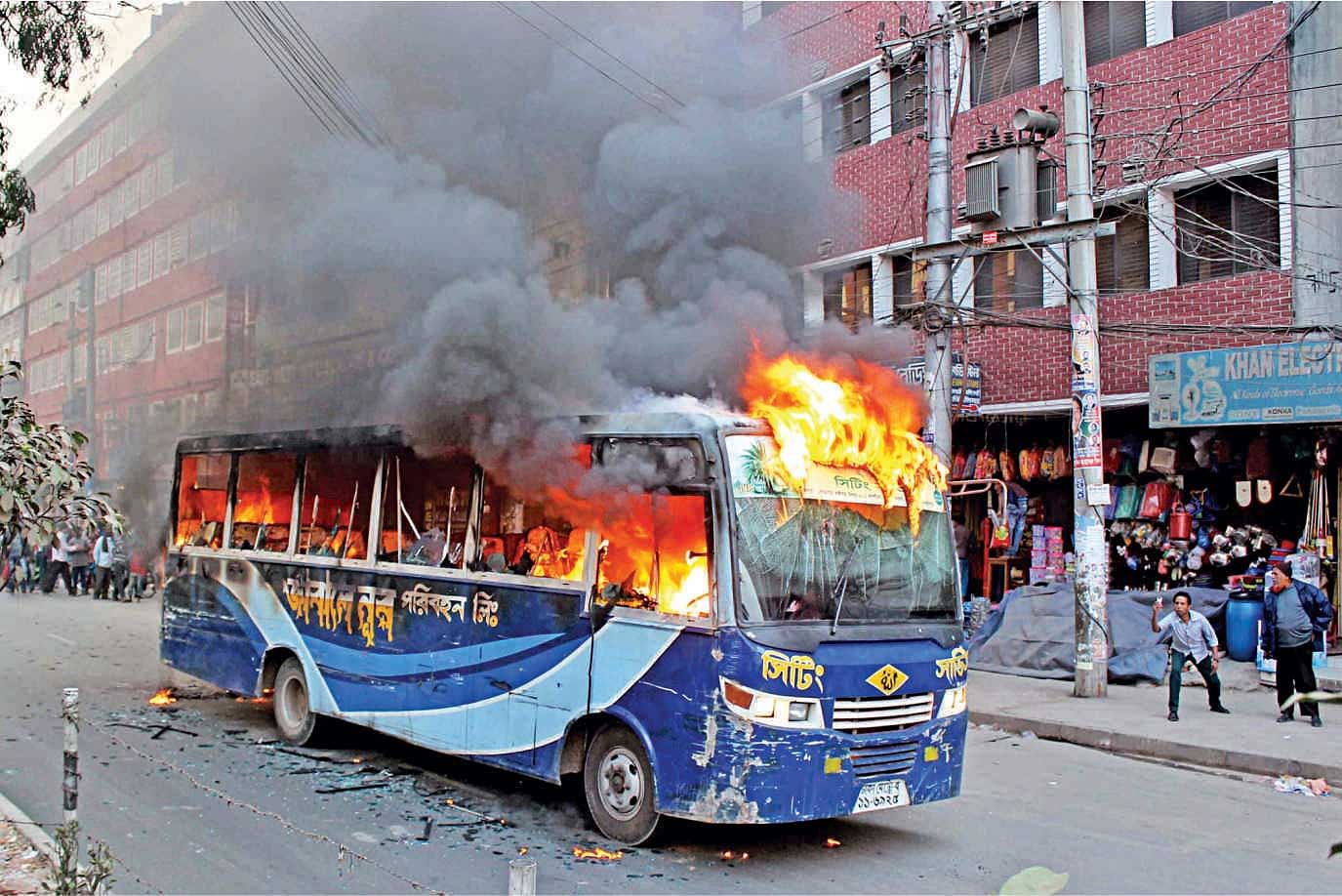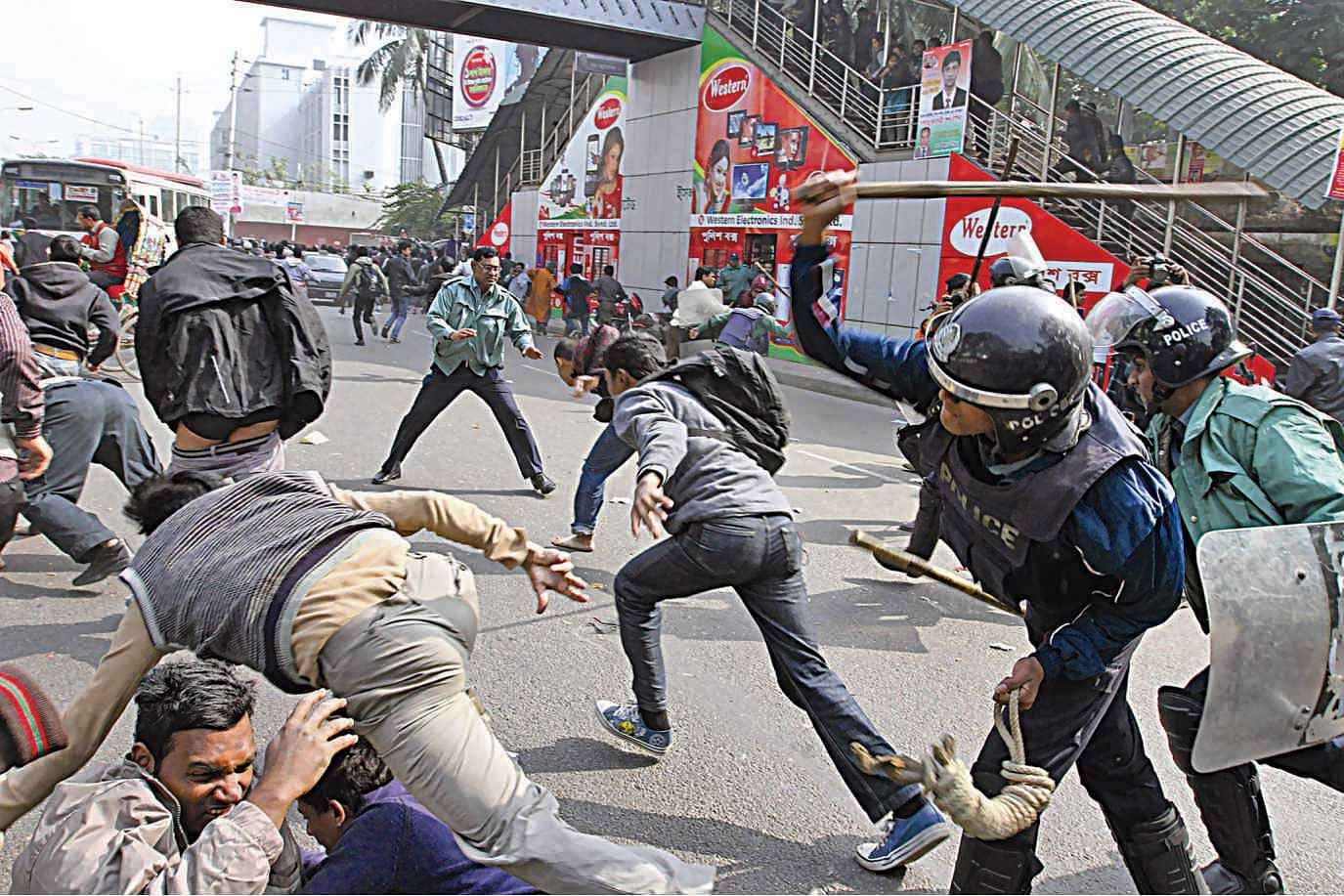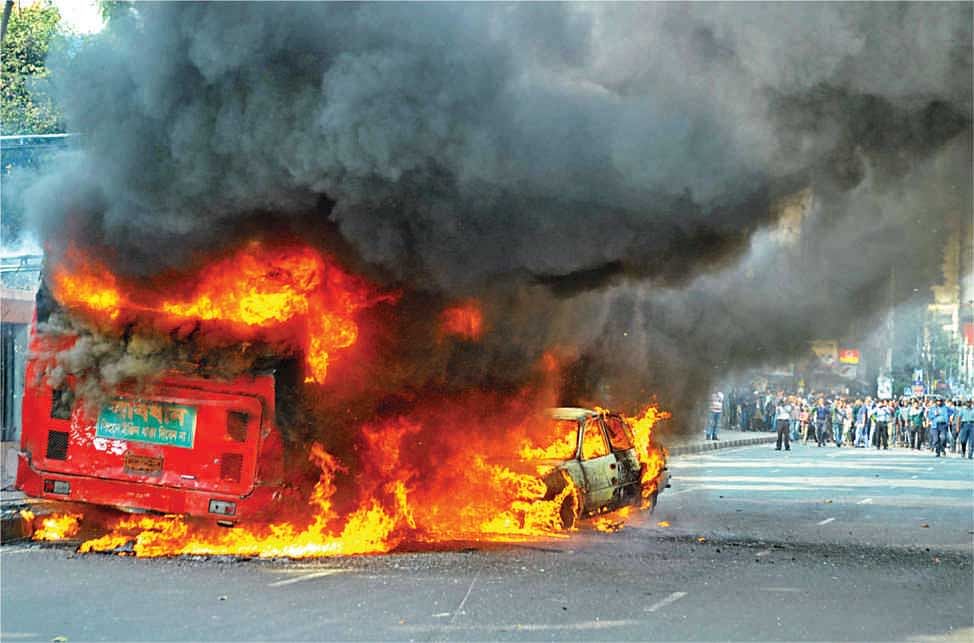The Genesis of Crisis

More than a week ago, BNP Chairperson Khaleda Zia has announced that her party-led alliance will keep enforcing the ongoing blockade until the government creates an atmosphere congenial for holding a free and fair early election. For the sake of argument, let's think that Prime Minister Sheikh Hasina agrees with Khaleda's demand and calls for an early parliamentary election as soon as possible, and takes steps towards the installation of a non-partisan election time government. Such an announcement is most likely to bring an end to the present political crisis.
But what will happen after the election? Either Awami League-led Hasina or BNP-led Khaleda will win the election and form the government. Will that election be able to produce a sustainable solution to the crisis? Our recent history says no.
Since the fall of the autocratic Ershad regime in December 1990, we have had five credible elections. People were allowed to exercise their voting rights. The AL and the BNP have been running the show in turns for more than two decades. But they have miserably failed to practice democracy. Their failure has produced political turmoil between 1995 and 1996, 2006 and 2007 and in 2013. And the current political crisis is the continuation of the previous one. The reason behind the crises was the unholy fight from both sides either to retain or capture power. Democratic norms and values existed little in their battles.

Therefore, an early parliamentary election, if it is held, may bring a temporary solution to the ongoing political crisis. But the genesis of the crisis will continue to exist until they are addressed. The major reason for the crisis is the acute absence of democracy within the political parties, particularly the AL and BNP.
The demand for holding a dialogue between the ruling and opposition camps has been growing louder. A dialogue may finally be held. The agenda for that dialogue should not be concentrated only for the mode of holding the next parliamentary election. The agenda should focus on the overall situation. Time has come to bring drastic reforms in the political parties to ensure democratic practices within the parties. The dialogue should address how to bring an end to the ever-pervasive culture of parliament boycott and how to strengthen the parliament, the election commission and other institutions that play an important role in the functions of democracy.
The dialogue must not be confined to only the AL and the BNP. All other political parties, civil society organisations must be allowed to join the talks. And of course, voices of the masses must be heard before taking any decision. For a genuine and effective dialogue, a national committee may be formed with senior politicians, academics, civil society individuals. The committee will hold talks with others and seek their opinion. Then, it will prepare a working paper for a national charter. Then the political parties and others will sign on it, promising to abide by the charter. If a major reform cannot be brought, the political situation will remain the same, let alone improve. And people will again and again be made subject to violence.

During the British rule, people waged a movement to establish self-rule meaning the rulers must have the consent of the people to govern the country. The movement had forced the British rulers to introduce limited democratic rights which could not satisfy the people of this sub-continent. Limited democratic rights had forced people to demand for independence. The independence movement in British India turned into a movement for democratisation. Lack of democratisation in Pakistan prompted people to wage a movement for democracy. And the emergence of Bangladesh is the outcome of a long struggle for democratic movement. In all the movements, people had to sacrifice immensely.
The writer is Senior Reporter, The Daily Star.

 For all latest news, follow The Daily Star's Google News channel.
For all latest news, follow The Daily Star's Google News channel. 



Comments